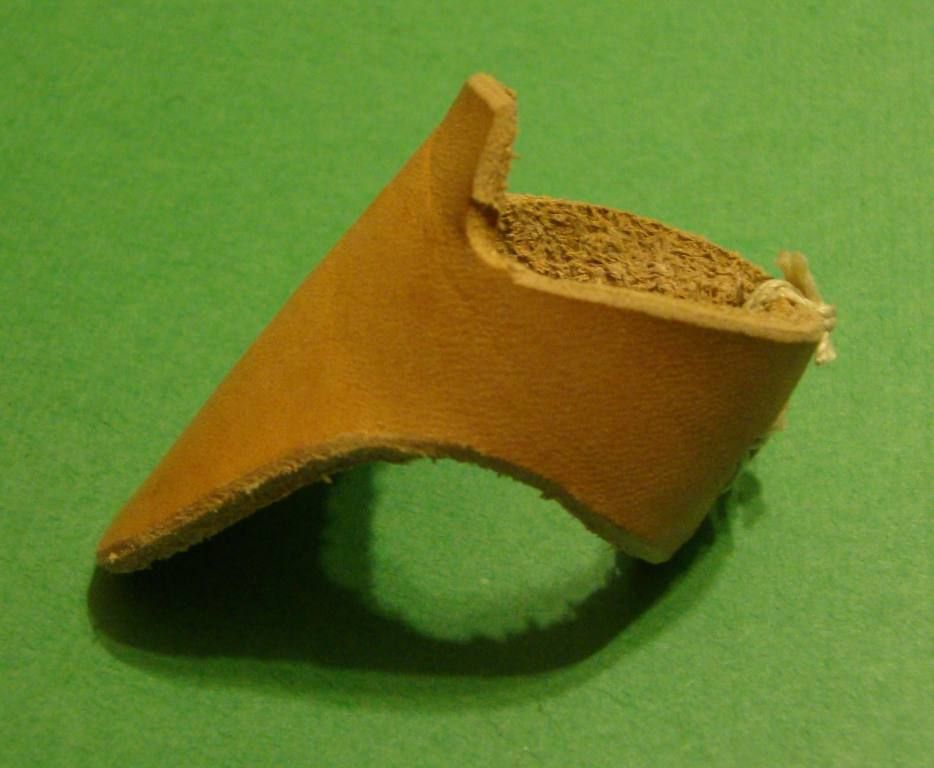2 2012-12-29 13:03:07
Re: Where can I buy a thumb ring online? (10 replies, posted in Thumb Rings)
First do one by yourself, wrapping a piece of leather around your thumb. With the time will have the right shape and perfect confort. 
Later you can ask someone to make one for you. Don't buy online if is for practical use, need to be exactly precise.
M.
3 2012-12-27 13:34:58
Re: Straight Mind and Straight Body (13 replies, posted in Philosophy and Etiquette)
Especially in asian languages words never have an ''absolute'' meaning. That's why only the practical oral tradition could explain the real sense of this kind of ''songs''.
M.
4 2012-12-26 15:11:26
Re: Straight Mind and Straight Body (13 replies, posted in Philosophy and Etiquette)
Sounds like "Anima Sana In Corpore Sano".
Is actually: mens sana in corpore sano ''A healthy mind in a healthy body''. Over time, the phrase has come to mean that only a healthy body can produce or sustain a healthy mind and vice versa. Is a saying of the pre-Socratic Greek philosopher Thales, "Νοῦς ὑγιὴς ἐν σώματι ὑγιεῖ". Is commonly addressed today to kind-of forma mentis the ancient Greeks hoping to achieve trough sports and knowledge. In fact the phrase is derived from Satire X of the Roman poet Juvenal which intended to teach his fellow Roman citizens that in the main, their prayers for such things as long life are misguided. That the gods had provided man with virtues which he then lists for them.
-Over time and separated from its context, the phrase has come to have a range of meanings. It can be construed to mean that only a healthy body can produce or sustain a healthy mind. Its most general usage is to express the hierarchy of needs: with physical and mental health at the root.
About the 정심정기/正心正己 above. Since i never study the contexts or the texts i will abstain from any kind of comment. I like to quote prof. Pregadio: "There’s one more important thing. I can hardly imagine a Chinese — or Indian, Japanese, Tibetan, Persian, etc. — adept of a tradition who does not know, study, and often memorize the main texts of his or her tradition. Knowledge of the written records of a tradition should also be important for a Western follower. Without that knowledge, a Western follower could easily end up twisting and distorting the tradition that he or she claims to belong to, according to his or her own particular perspective. Any Eastern tradition teaches exactly the opposite attitude: until one reaches a truly advanced stage, one should follow the tradition “as is,” with no attempt to reinterpret it or adapt it to any contingent circumstance. The re-adaptation (or rather, re-codification) of a teaching to different historical or social circumstances is a very important and interesting phenomenon in the history of any traditional teaching."
M.
5 2012-12-26 13:17:45
Re: apply the correct twist to the bow handle (31 replies, posted in Technique)
In chinese archery the twisting releases are many. I saw koreans and japanese archers do sometimes almost the same releases as chinese. Generally speaking i don't recommend to try it without a proper training guided by a master.
M.
6 2012-12-26 11:55:55
Re: Show us your rings :-) (16 replies, posted in Thumb Rings)
Hi,
Here my new one, made by an artisan friend.

7 2012-12-24 07:50:12
Topic: Thanks for this Forum (1 replies, posted in New Member Introductions)
Hi,
I'm Mattia, i live in Beijing. Thanks to let me write in this interesting forum.